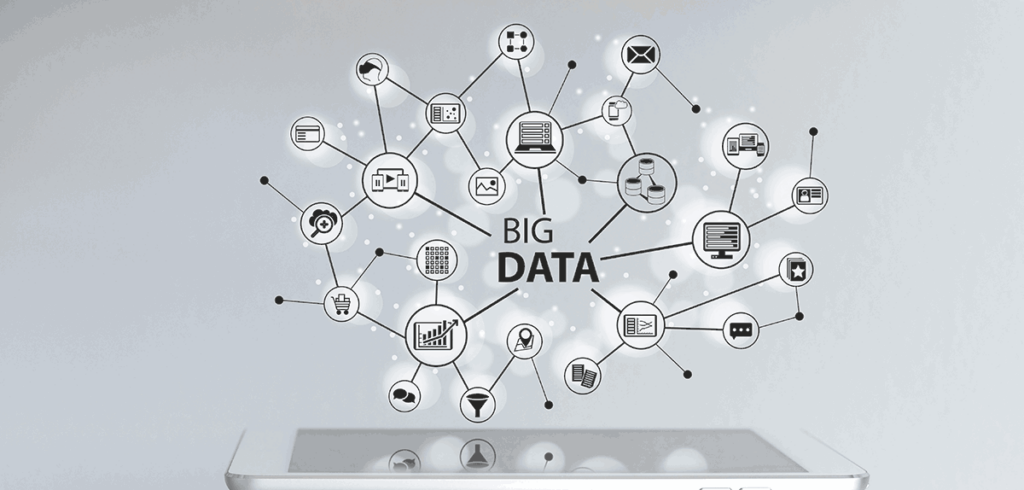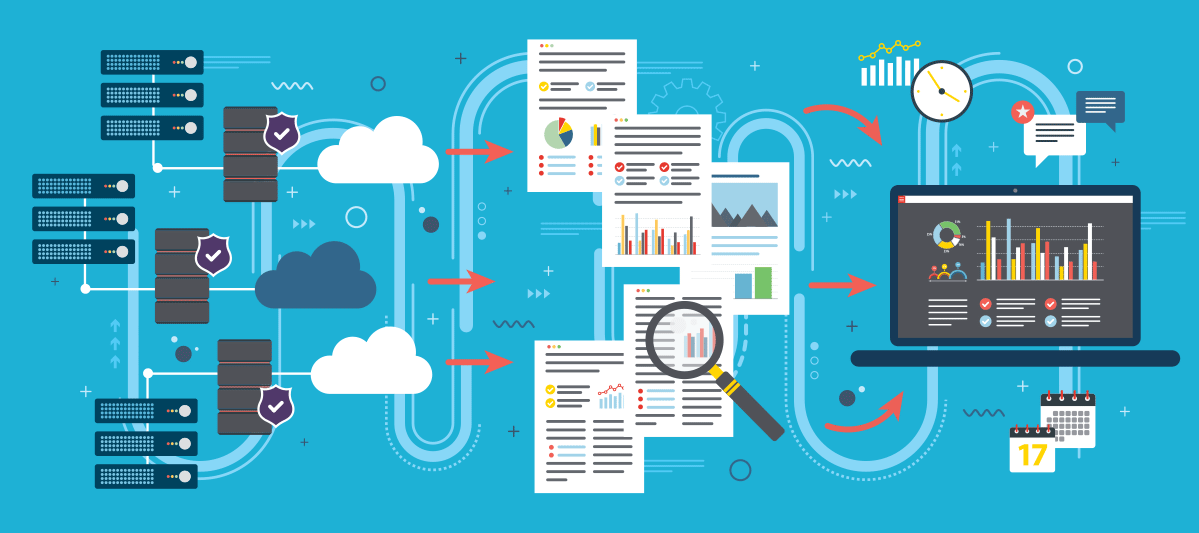If you’ve had a screen in front of your face in the last few weeks, you’ve probably heard or read about the hot water Facebook has landed themselves in over the whole Cambridge Analytica data sharing nightmare. In case you missed it, here it is in a nutshell:
Prior to the 2016 presidential election, a data researcher at Cambridge University developed a personality-based app that consumers could access via Facebook. Just like any app, it had its own set of terms and conditions that users had to accept in order to access the quiz within the app. (While it’s speculated that this app collected data beyond what was allowed for in these terms and conditions, there was some portion of data that consumers agreed to share by accepting these terms. This is common practice for many, many apps and websites in the digital world.) The researcher then sold that data to Cambridge Analytica, a British political consulting firm. This firm utilized the data they acquired to identify consumer personality traits and target them with political ads. These facts came to light a few months ago, and public outcry ensued.
While Facebook admits that it routinely shares data with researchers in the name of academia, it does prohibit the transfer of this data to any sort of ad network that may utilize it for monetization; so technically, the app developer and Cambridge Analytica were in the wrong. Regardless, this event stands as a stark reminder to consumers that their data may not be as secure as they once thought.
What’s perhaps most interesting about this data debacle is the amount of attention this particular incident is drawing from consumers and media hounds alike. As a whole, data sharing isn’t a new concept – thousands of apps and websites collect some sort of information from you as a consumer. Think about how many times you enter your name, email address, phone number, etc. into a contact form, and then check the little box that says, “By submitting this information, I agree to [Website Name]’s Terms & Conditions.” Now how many times did you actually read those terms and conditions? Yeah, that’s what we thought.

Likewise, this is not the first data breach scandal to be splashed across headlines nationwide. Take a look at Equifax, Target, Home Depot, Chipotle, and many others if you want examples of serious data breaches that impacted millions and compromised much more potentially harmful information (think credit card numbers, driver’s license numbers, and bank account info) than the pages you like and your personal affinities.
So why all the fuss over this particular event? It’s likely due in part to the platform. Facebook feels more like a personal extension of yourself – it houses your likes and dislikes, portrays your personality, and displays precious memories like photos of your pets or long-lost family members. All of these things are more sentimental than, say, your credit card number, making this data scandal feel more personal than its predecessors. Much of it can also probably be attributed to consumer knowledge (or lack thereof) about how much their data is actually being used in the world of advertising. You sign into your Facebook account and can tighten up your privacy settings, so surely your data is secure, right? Obviously, consumers are getting wise to the fact that their data is not nearly as secure as they once thought.
Since we’re in the business of educating our clients, this leads us to ask several critical questions to better understand digital data from a consumer standpoint. First up:
How is my data collected?
This is a tough one to answer, because really, the act of using a digital device these days means you’re sharing data. If you type a website into your URL bar, you’re sending data. If you perform a Google search, you’re sending data. If you’re reading a web page, there are tags and crawlers on most websites that collect data about what you’re reading. The increased use of social media sites over the last decade only makes data collection even simpler. Consumers are literally putting themselves out there for marketers to use. Age, income range, race, religion, family composition, the estimated price of your home, the type of car you’re looking at buying, what types of activities you enjoy, your relationship status – all of these things, and much more, are readily available for marketers to use for targeted advertising. Remember all of those terms and conditions we talked about? In many cases, that’s you giving permission to these sites to collect and share your data.

What is my data used for?
While there are multiple answers to this question, the biggest users of data by far are advertisers. In theory, this is actually a good thing for consumers. Through data analysis, we as marketers are able to identify what channels are most effective, what ad messaging drives more engagement, and what will ultimately lead to a conversion (and conversions equal money). This means more thoughtful, relevant advertising for you as a consumer.
Consider these statistics – while people may say they consider digital ads to be somewhat annoying, a whopping 71% of consumers said they prefer customized ads (source) and 90% of consumers like seeing custom content from brands (source). Marketers are simply trying to give consumers what they want – a tailored, personalized ad experience that is both engaging and relevant. That may sound like a tall order, but with the help of all this data, we’re able to deliver.
How accurate is my data?
Like the answers to our previous questions, this one is equally vague – it depends on the source. Information gathered from social media sites (yes, Facebook plays a large part in this) is often quite accurate, since consumers are readily providing that information. Similarly, data collected from current marketing campaigns to determine what is and isn’t working is equally accurate. For example, we at iFocus are constantly analyzing data and behavioral patterns we see through our marketing campaigns to determine where we can make optimizations to further boost performance. Again, it’s all about creating that personalized ad experience.
But there are some data channels that tend to be less accurate, such as what we like to call, “big box” data companies (think Acxiom, Nielsen, Oracle, etc.). There are certainly instances in which this data is still very accurate, but many of these big data companies are basing their consumer profile data off of browsing behaviors and search history on a consumer’s device. While these data points can be a good reflection of what you may be interested in, it can also be quite skewed.

Take, for example, one of our directors. She referred to BlueKai’s registry to see what data segments she had been put into. (Keep in mind, these are all segments that many marketers use to target digital ads.)
While there were many, many segments that she fell into, here are the highlights of her profile, as told by BlueKai:
- Female Gen Xer
- Married, with two kids (one aged 10-12 and one aged 13-15)
- Uses an iPhone on Verizon service and has cable television
- Works in construction, productivity solutions, and HR
- Has a graduate degree
- Owns a cat
- Hockey enthusiast
- Has owned her home less than a year
- Likes brands such as Dial, Refresh, Clear Eyes, Nike, Publix, Sam’s Club, and Carnival
- Recently purchased a Chevy Cruze and a Lexus sedan
Here’s what she had to say about the results:
“Well, they got the female part right. I’m almost a Gen Xer, but technically I’m on the old end of millennials. I am married, but I only have one child, and he’s five months old. I’ve never owned an iPhone, I’ve been on Sprint for years, and my husband and I cut the cable cord five years ago. Obviously I work at iFocus, so I do not work (and never have worked) in any of those fields. I took zero graduate classes, I have two dogs and don’t like cats, I’ve never been to a hockey game in my life, and my family and I have been in our home for four years now. I’ve never purchased anything from Dial, Refresh, or Clear Eyes. There aren’t even Publix stores in Kansas City, and I’ve never been to one. I can’t remember the last time I bought anything from Nike, and the last time I set foot in a Sam’s Club was in high school (I’m a Costco girl). I’ve never been on a Carnival cruise, nor have I researched going on one. I haven’t made any new vehicle purchases in six years, I drive a Buick Regal, and I wish I could afford a Lexus.”
As you can see, the data can be pretty skewed. This makes sense, since the aforementioned director does a lot of research on her computer for our clients. She performs many searches related to a client’s target audience that have nothing to do with her personal interests. But big data companies don’t differentiate – data is data.
The Bottom Line
What it all boils down to is this: Data will always be there. Unless you get rid of your smartphone, your computer, your smart TVs and Blu-Ray players, and wrap yourself in tin foil, companies will be collecting data from you. While the digital playing field may change with speculated new rules and regulations, similar to GDPR in the EU, data will always play a huge part in marketing. It’s a simple fact in the age of technology.

The biggest thing you can do as a consumer is educate yourself. Be cognizant of what information you share on the internet. Browse through those terms and conditions (or at least skip to the part about privacy and data sharing). Pay attention when a browser notification pops up telling you the site you’re on uses cookies to collect information. Go read about how Facebook is updating its privacy policy and making your information more secure. In today’s digital era, education is empowerment.
And remember – while there are malicious organizations out there trying to use data for the wrong reasons, much of your data is just being shared with advertisers to up their marketing game and get you to buy something. Yeah, sure – it’s mildly annoying at times. But given the choice between having cyber attackers steal your identity or having someone use your personal interests to serve you a relevant ad for a product you’re interested in, which would you choose? We don’t know about you, but we’d definitely prefer the latter.







